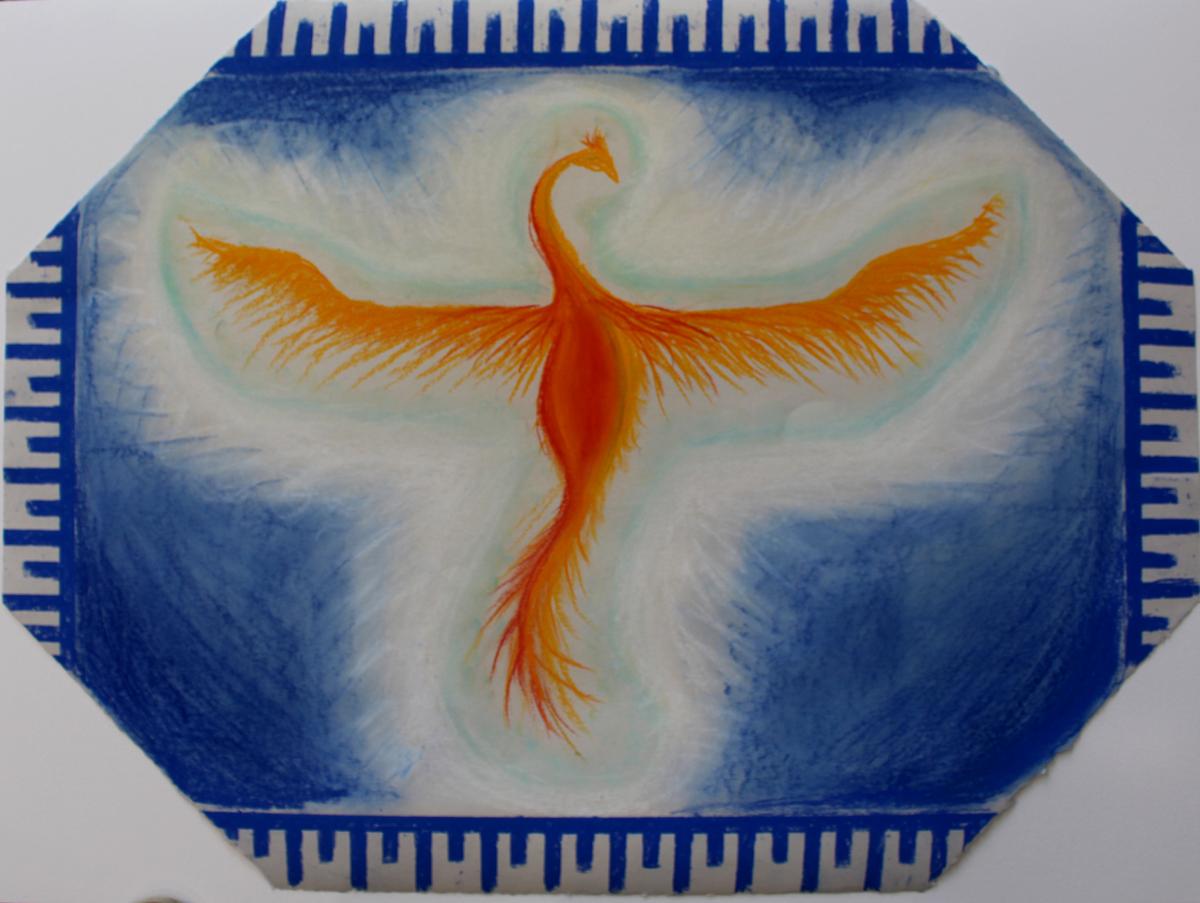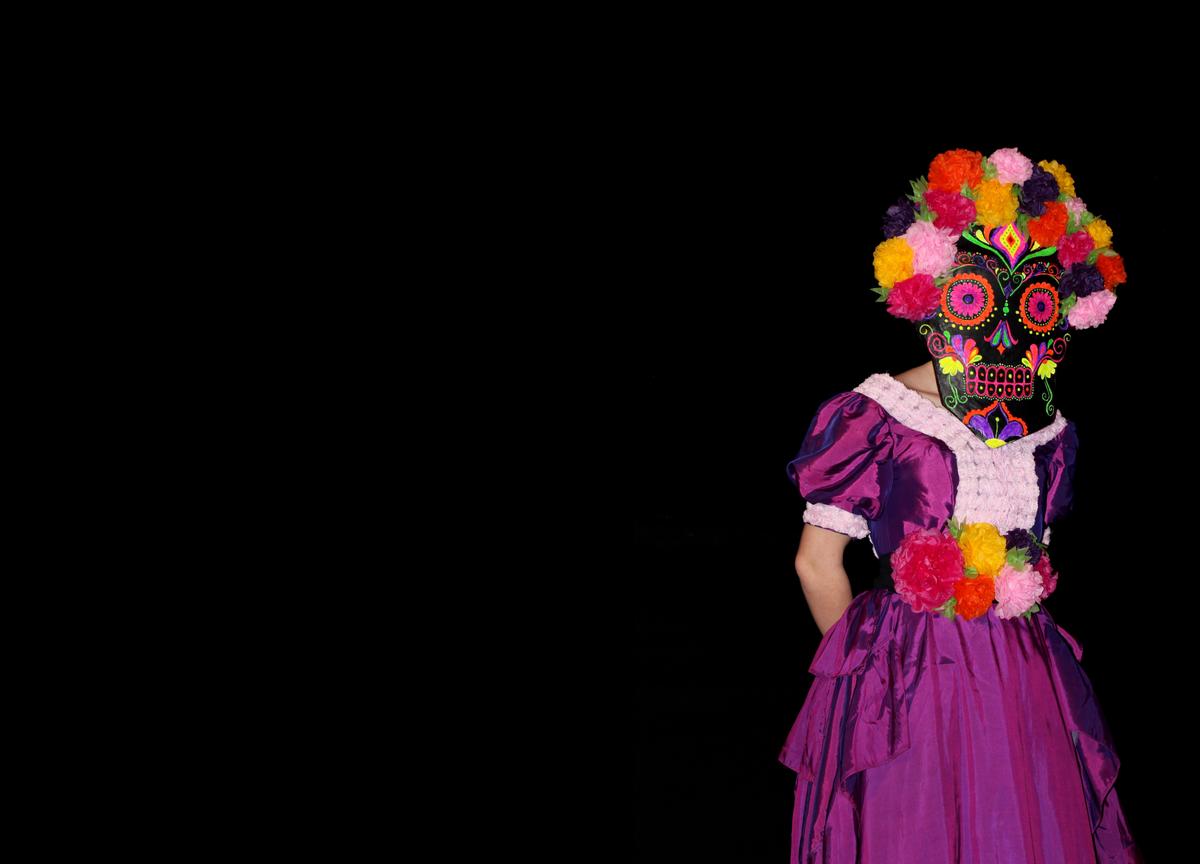Global Engagement Through The Ivy Eyes
Artwork by Karla Dielmann, Year 12, The Ridgeway Campus

Global Engagement Through The Ivy Eyes
Artwork by Karla Dielmann, Year 12, The Ridgeway Campus
By Rohan Gandhi, Emmy Lamontagne, Pranav Chilamkurti and Jess McCreadie, Year 12, The Ridgeway Campus
Environmental
Climate change is a very prominent global issue, with spikes in greenhouse gases causing an increase in the global temperature levels, negative effects towards our air quality and many other detrimental global implications.
We have recognised these negative ramifications of climate change and decided to tackle this global issue by implementing initiatives in our school grounds. These initiatives play an important role in creating a sustainable environment. Introducing a student-run composting system to our school, assist us in reducing the production of greenhouse gases and poisoning groundwater (which would happen if the waste was sent to landfill). In addition to this initiative, we are currently helping to make the school entirely ‘zero-waste’. This is one of our larger goals for the school and is occurring through getting more recycling bins to distribute through the school with proper labelling and also raising awareness about what can be recycled and how to recycle. We have also been working with the cafeteria to try and reduce waste within the school, especially in terms of disposing the bio-pack containers in a sustainable way and discussing environmentally friendly alternatives.
Global
The 2020 year has no doubt been a confronting year in terms of global events, and to combat this our team developed the global forum. This is a group that meets at a designated lunchtime and discusses current global issues in a safe and judgement-free environment. We have dealt with topics such as the Hong Kong protests and female empowerment. Recently, given the Black Lives Matter protests in the US, we have been running frequent forums on this topic, discussing racial inequity in both the US and Australia. Our forums don't just discuss the issue and leave it there, we also strive to hear from peers and elaborate upon how we, as a school community, can contribute and be a part of the solution, given our integral responsibility as global citizens. While some things are currently unable to run, we have been able to maintain contact with the Asylum Seeker Resource Centre and will hopefully be able to invite some speakers to run workshops with the student body to allow for further education and awareness relating to asylum seekers and refugees. Additionally, we are working with the Indigenous Literacy Foundation. We will be able to donate school supplies, specifically books, as well as become further involved within this organisation.


By Ellaria Tzirkas, Year 6, Buckley House
What does it mean to be global citizen?
As a Global Captain of 2020, I believe that it is important to understand that being a global citizen is about improving your surroundings (e.g. thinking about your footprint on the world). For example, when Melbourne had its first COVID-19 outbreak, our school decided to start up online learning so that we were not risking the health of the students. This is an example of being a global citizen. Something I value, especially because we still have an opportunity to engage in a variety of specialists’ classes, like Art and Music. I am very grateful that our school was able to get all of the students to learn via Zoom and not miss out on classes.
What have we done as Global Captains?
Jonathan and I have demonstrated how to be a global citizen in many ways. One being that we, the Global Leaders Team, decided to start up a project about recycling plastic utensils, such as: pens, whiteouts, glue sticks, crayons and anything plastic. By doing this we represented ourselves as Global Leaders and great global citizens. This statement is true because we are trying to take initiative to help make our school environment and the whole environment a better place for everybody. Another thing about being a global citizen is that it’s not just about caring for yourself, it’s about doing what’s best for you andyour surrounding community.
By Jonathan Zapris, Year 6, Buckley House
What actions have we undertaken to be a global citizen in Year 6L?
During the current global challenges, we, as a class, have given our best possible efforts to continue to grow and learn as global citizens. While we undertook many initiatives, we gave particular attention to National Reconciliation Week. We have embarked on many tasks to fully understand, embrace and grow as learners. Despite the challenges that were upon us due to online learning, we were still able to participate through activities such as saying and the ‘Acknowledgement of Country’ to begin the day. The key focus of the week was to celebrate the beauty of the Indigenous culture and people and understand the true meaning of reconciliation which is to strengthen and reunite relationships between Aboriginal and Torres Strait Islander peoples and non-indigenous peoples. We all created a response to reflect our journey as learners in a pathway to reconciliation, answering the key question “What does this all mean to me?”
How can we be global citizens in this time of online learning and isolation?
I believe that during this unforeseen time, as a student, I should remain focused and look to the future with the positives that have come from going through hardship. To be Global Citizens during this time we must show resilience, understanding, compassion, courage, and work together to look to the future with an open mind in helping others.


By Heidi Chan, Year 11, The Ridgeway Campus
Looking back on myself when I was still studying in Hong Kong, I was an ignorant, narrow-minded and biased person. Not until the day I left home, flew to Australia on my own and stayed in a host family, did I start changing my perspective of the world. Studying abroad was a life-changing decision, which I will never regret. Although I’ve been here for only a year and a half, living under the Australian way has taught me a lot, especially the way to respond when people have differing views to you. By interacting and communicating with the local people, I found out Australians are more open-minded, easy-going and liberal compared to the people from my country. People are welcome to express and share their opinions at all times without judgement. As I am an International student, people always like bumping into me and asking me questions about the languages I speak, the life I had or weird food I love in my country. I do enjoy sharing different cultures as it is really fun to know more about Australia. Culture has no right or wrong but always has something we can learn from each other and helps us to know more about the global community. I would be lying if I told you it was easy to adapt to the massive change in lifestyle or the cultural differences when I first came to Australia but it is a wonderful experience which has broadened my horizon and expanded my knowledge. Throughout the year, the most important lessons I’ve learnt is that whether you are an international student or a global citizen who is facing cultural differences, always show respect and understanding to each other to build a peaceful and loving global community.


By Kiaan Mirghashini, Year 8, The Ridgeway Campus
For me, global citizenship has always been quite a vague term. I never really thought deeply about what it meant. Generally, I always assumed that it would mean being a person who has travelled the world a lot and lived in many places. Nevertheless, during Year 7 we learnt about global citizenship and what it means. I discovered that global citizenship has nothing to do with travelling or living in many places; it actually means being helpful in your community and showing gratitude towards others. This surprised me and inspired me because being a global citizen sounds like a valuable role to play.
By Edward Redlich, Year 8, The Ridgeway Campus
A global citizen is someone that seeks to contribute to addressing issues that have the potential to affect other citizens of planet Earth. Global citizenship takes the individual beyond personal or local community needs; it is about addressing issues at a worldwide level. A global citizen can have a worldwide impact, starting in their own community, thinking globally and acting locally.
In broad terms, a global citizen’s concerns may address other nation’s economic needs, environmental needs, cultural issues, worldwide health, and the maintenance of relationships between nations. Specifically, a global citizen should be mindful of international issues that may not directly affect them.
My idea of what it means to be a global citizen has evolved over the last year as I have become more aware of the challenges facing the people of other nations. Above all, I realise that one can make constructive changes through one’s own community and nation.
We can be good global citizens by taking a more environmentally responsible approach to emission control to reduce the rate of global warming. We can selectively contribute financially to underprivileged people in third world countries. We can provide educational support through the expertise of our teachers. We can provide our industrial expertise to assist struggling communities to be more productive in their primary and secondary industries. We can play our diplomatic role to minimise the potential for conflict between nations.
Especially during this unique COVID-19 environment, many may ask the question of whether overseas global citizens had each done enough to stop the worldwide spread of COVID-19.
As a part of the world’s population, it is our job as Victorians and Australians to step up and address worldwide issues to make our planet, our home the best place it can be.